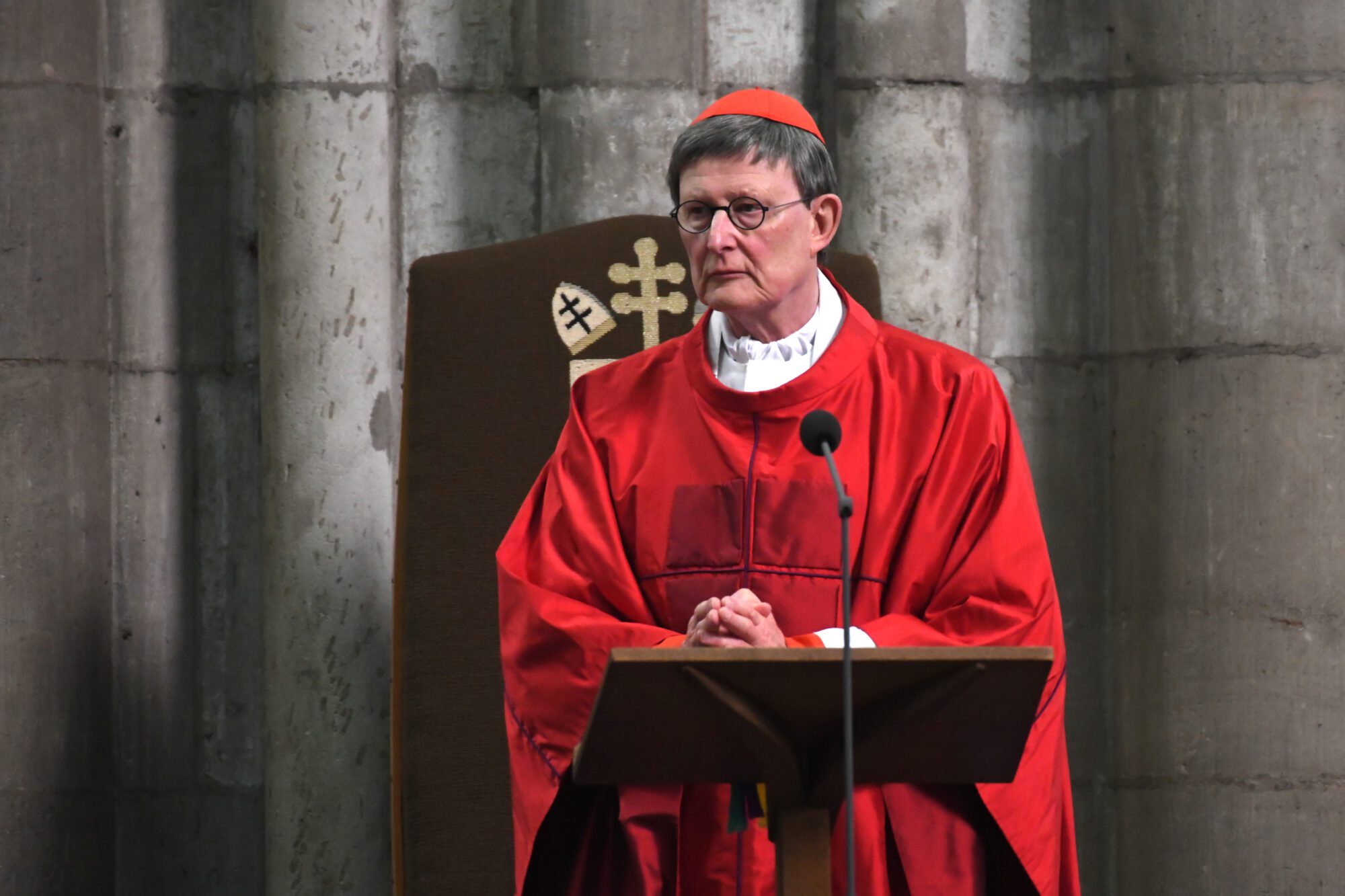
Germany’s Catholic Church has become severely divided over moral teachings and now lay people are pushing back, claiming a kind of doctrinal authority against the Church’s own senior clergy with respect to the blessing of homosexual couples.
The Synodaler Weg (Synodal Path), was a conference that took place earlier this year which saw lay people and members of the German clergy discuss various controversial matters relating to opening the priesthood up to women and other issues. In an unprecedented turn, lay people are now trying to dictate Church doctrine.
Members of the Synodaler Weg backed calling for the ordination of women priests, something not seen in the more than 2,000-year history of the Roman Catholic Church, ending celibacy requirements for priests, and demanding priests bless same-sex couples.
Now, priests are putting the Synodaler Weg’s suggestions into practice, with a priest in the Archdiocese of Cologne, Fr. Herbert Ullmann, conducting a “blessing service for all loving couples.”
There has been pushback, however, from Cardinal Rainer Maria Woelki of Cologne, who criticised Father Herbert Ullmann for his actions.
Birgit Mock, a vice president of the Central Committee of German Catholics (ZdK) and a prominent participant in the Synodaler Weg’s working group on sexuality, hit back against Cardinal Woelki, calling the Cardinal’s criticism and warning to the priest “beyond incomprehensible.”
Mock, who supports the blessing of same-sex couples, stated, “God is shown in their love, I firmly believe in that,” and added,
That is why I am personally committed to ensuring that the blessing celebrations, which have long been in practice to encourage people on their way, will in the future tell of the good news and the acceptance of every human being in open churches in all dioceses.
Mock’s statement is contrary to what the Vatican teaches and many of the Synodaler Weg’s pronouncements have been heavily criticised by the Vatican, which stated last month,
The ‘Synodal Way’ in Germany does not have the power to compel bishops and the faithful to adopt new forms of governance and new orientations of doctrine and morals.
“It would not be permissible to introduce new official structures or doctrines in dioceses before an agreement had been reached at the level of the universal Church, which would constitute a violation of ecclesial communion and a threat to the unity of the Church,” the Vatican said.
The Vatican has also explicitly noted that priests are unable to bless same-sex unions, outlining the Church’s reasoning, noting that blessings were tied to sacraments stating,
it is not licit to impart a blessing on relationships, or partnerships, even stable, that involve sexual activity outside of marriage (i.e., outside the indissoluble union of a man and a woman open in itself to the transmission of life), as is the case of the unions between persons of the same sex.
Despite the opposition from the Vatican, Ms. Mock has pushed for same-sex blessings and claimed they do not violate the sacrament of marriage, saying, “Rather, the Synodal Way has built bridges between doctrine and the world of life. I believe that in a universal Church, as it currently stands, we will never be able to completely dissolve this tension. It’s about living the diversity that belongs to it.”
Several high-ranking members of the German clergy, including Bavarian Cardinal Reinhard Marx, support blessing same-sex unions but other German bishops are divided on the matter.
Many German lay Catholics are also opposed to the agenda of the Synodaler Weg, with 6,000 sending a letter to Pope Francis to express their opposition to the conference earlier this year.
Germany’s lay groups, such as the Central Committee of German Catholics (ZdK) have a large amount of power in Germany and include former and active politicians, 90 elected members from diocesan councils, and around 100 members from various Catholic organisations.
The German Church is also well-known as being one of the richest in the world due to the German state’s Church tax, which obligates Catholics to pay a tax to the Church out of their income.
Some have suggested that the Archdiocese of Cologne alone has a higher amount of money in assets than the Vatican itself.
Despite being awash with cash, the German Catholic Church is facing major problems due to member attrition. Last year it saw a record 522,821 people leave the Church. As many as one in three of the estimated 21 million German Catholics are considering leaving the faith.
The reasons for leaving are many, with some quitting so they no longer have to pay the Church tax, while others have left due to the multiple scandals the German Catholic Church has faced in recent years, including allegations of a cover-up of sexual abuse.
Cologne Cardinal Rainer Maria Woelki has not been spared from such allegations. He has been accused of providing false witness to German authorities regarding how much he knew about sexual abuse in his diocese.
Last month, Cardinal Woelki’s home in Cologne was raided by German police as part of an ongoing investigation. Woelki later stated he planned to take legal action regarding the raid.
